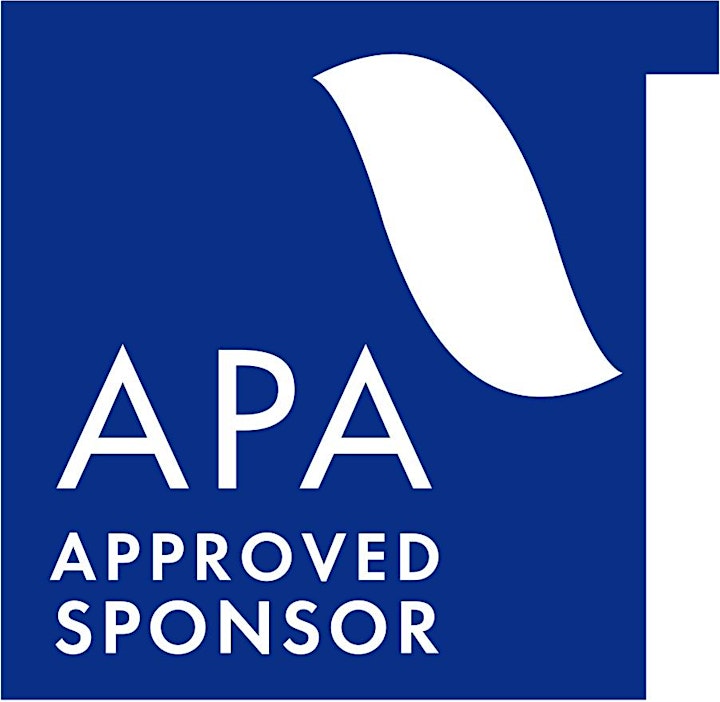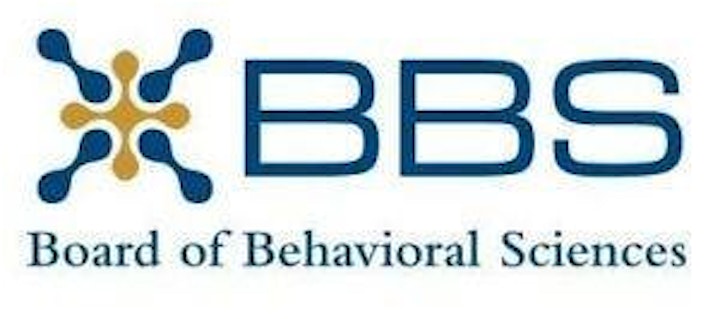
- This event has passed.
Core Competencies for the Assessment and Management of Suicide
September 16, 2020 @ 11:00 am - 2:15 pm CDT

Presented by The Institute for Professional and Continuing Studies
Core Competencies for the Assessment and Management of Suicide
Wednesday, September 16th, 2020
9:00AM-12:15PM (PT)/11:00AM-2:15PM (CT)/12:00PM-3:15PM (ET)
Event held online via Zoom, link to access provided upon registration
This program, when attended in its entirety, offers 3.0 APA CEs for Psychologists, and 3.0 BBS California CEUs for LPCCs, LPSW, and LMFTs
Workshop Description:
The available evidence suggests that there are deficiencies in professional training for the assessment of individual as risk for suicide and suicide prevention. In response to these deficiencies, the Suicide Prevention Resource Center (SPRC) and the American Psychological Association (APA) have developed competencies and guidelines in suicide risk assessment and prevention for practice and training. This presentation will review 24 core competencies for assessing and managing suicidality.
The program will begin by discussing the need for greater training in managing individuals at risk for suicide. Mental health professionals frequently encounter suicidal individuals, but often feel they have inadequate training to manage them. This conclusion is supported by a number of small studies of mental health professionals (primarily clinical psychologists) who reported significant deficiencies in their graduate training regarding suicide prevention.
Next, efforts to improve training and competency in suicide prevention will be reviewed. These efforts include a national summit from the American Association of Suicidology and the Suicide Prevention Resource Center. Finally, the program will review 24 core competencies. These competencies are organized into seven clinical skill domains. Thus, the program provides guidance for curriculum development in training programs, practica, and internships. It is also relevant for clinical supervisors and for front-line clinical care.
Learning Objectives:
1. Describe the deficiencies of clinical training programs in their coverage of suicide risk assessment and suicide prevention.
2. Identify which organizations are responsible for developing clinical competencies for suicide risk assessment and suicide prevention.
3. List the core competencies for suicide risk assessment and management.
4. Describe how to implement principles of suicide risk assessment and suicide prevention into clinical training.
5. Identify resources for descriptions of core competencies.
Professional Bio of Presenter , Lawrence P. Riso, Ph.D.
Dr. Riso is Professor of Clinical Psychology at The Chicago School of Professional Psychology, Washington DC campus. He completed his PhD in clinical psychology at the State University of New York at Stony Brook. He previously served on the faculty at the University of Pittsburgh School of Medicine, Georgia State University, and the University of Georgia. He is an expert and certified trainer in cognitive-behavioral therapy. For over 20 years he has been teaching psychotherapy and trained numerous doctoral students. As a licensed clinical psychologist, he maintains a private practice specializing in anxiety, depression, and couples therapy. He has published more than 50 articles and book chapters, received federal funding from the National Institute of Mental Health for his research, and serves on three editorial boards. He is past president of the Washington DC area chapter of the American Foundation for Suicide Prevention and has met with members of the U.S. House and Senate regarding parity for mental health coverage and funding for suicide prevention.
Program Standards and Goals:
This program meets APA’s continuing education Standard 1.3: Program content focuses on topics related to psychological practice, education, or research other than application of psychological assessment and/or intervention methods that are supported by contemporary scholarship grounded in established research procedures.
This program meets APA’s continuing education Goal 1: Program is relevant to psychological practice, education, and/or science.
Workshop Schedule (Shown in EST):
12:00 pm – Event Begins
Two 15-Minute Breaks
3:00 pm – Event Ends
Registration and Fees:
General admission: $50.00
References:
Centers for Disease Control and Prevention. (2014). Web-based Injury Statistics Query and Reporting System (WISQARS) [Online]. Retrieved from https://www.cdc.gov/injury/wisqars/Centers for Disease Control and Prevention. (2015a). Definitions: Self-directed violence. http://www.cdc.gov/violenceprevention/suicide/definitions.html
Centers for Disease Control and Prevention. (2015b). Suicide facts at a glance. National Center for Injury Prevention and Control, Division of Violence Prevention. Retrieved from http://www.cdc.gov/violenceprevention/pdf/suicide-datasheet-a.pdf
Centers for Disease Control and Prevention. (2015c). Suicide: Risk and protective factors. Injury Prevention and Control, Division of Violence Prevention. Retrieved from http://www.cdc.gov/violenceprevention/suicide/riskprotectivefactors.html
Centers for Disease Control and Prevention (2017). CDC WISQARS: Leading causes of death reports, 1981–2016. Available from webappa.cdc.gov/sasweb/ncipc/lead-cause.html.
Goldstein, G. J., Hogan, M.F., Chu, A.,Covington, D.W., Johnson, K.E.(2016) Compliance Standards Pave the Way for Reducing Suicide in Health Care Systems. Journal of Healthcare Compliance.
Minton, C. A., &Pease-Carter, C. (2011). The status of crisis preparation in counselor education: A national study and content analysis. Journal of Professional Counseling, 38(2), 5–17.
Montague, K.T. , Cassidy, R. R., & Liles Guill, R (2016). Counselor Training in Suicide Assessment, Prevention, and Management . Ideas and Research You Can Use: VISTAS 2016
CONTINUING EDUCATION:
Target Audience: Healthcare and Mental healthcare professionals, hypnosis practitioners, University faculty and students. Members of the TCSPP community.
Psychologists. This program, when attended in its entirety, is available for 3.0 continuing education credits. The Chicago School of Professional Psychology is committed to accessibility and non-discrimination in its continuing education activities. The Chicago School of Professional Psychology is also committed to conducting all activities in conformity with the American Psychological Association’s Ethical Principles for Psychologists. Participants are asked to be aware of the need for privacy and confidentiality throughout the program. If program content becomes stressful, participants are encouraged to process these feelings during discussion periods. If participants have special needs, we will attempt to accommodate them. Please address questions, concerns and any complaints to Danielle Bohrer at 312-467-2364. There is no commercial support for this program nor are there any relationships between the CE Sponsor, presenting organization, presenter, program content, research, grants, or other funding that could reasonably be construed as conflicts of interest.
MFTs, LPCCs, and LCSWs. Course meets the qualifications for 3.0 hour of continuing education credit for MFTs, LPCCs, and/or LCSWs as required by the California Board of Behavioral Sciences. If you are licensed outside of California please check with your local licensing agency to to determine if they will accept these CEUs. The Chicago School of Professional Psychology is approved by the California Board of Behavioral Sciences (BBS) to offer continuing education programming for MFTs, LPCCs, LEPs, and/or LCSWs. The Chicago School of Professional Psychology is an accredited or approved postsecondary institution that meets the requirements set forth in Sections 4980.54(f)(1), 4989.34, 4996.22(d)(1), or 4999.76(d) of the Code.
Participation Certificate. The Chicago School of Professional Psychology is able to provide students and other participants who simply wish to have documentation of their attendance at the program a participation certificate.
Non Psychologists. Most licensing boards accept Continuing Education Credits sponsored by the American Psychological Association but non-psychologists are recommended to consult with their specific state-licensing board to ensure that APA-sponsored CE is acceptable.
*Participants must attend 100% of the program in order to obtain a Certificate of Attendance.
The Chicago School of Professional Psychology is approved by the American Psychological Association to sponsor continuing education for psychologists. The Chicago School of Professional Psychology maintains responsibility for this program and its content.


